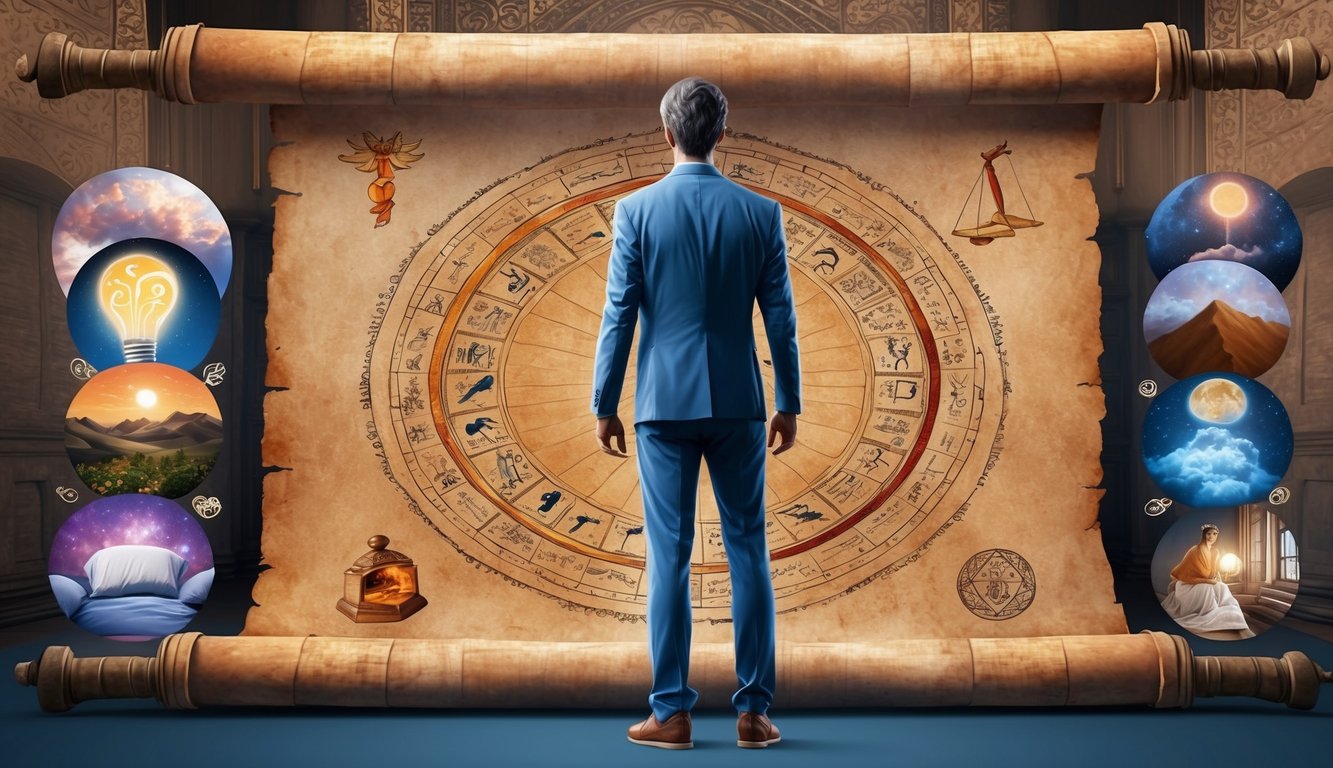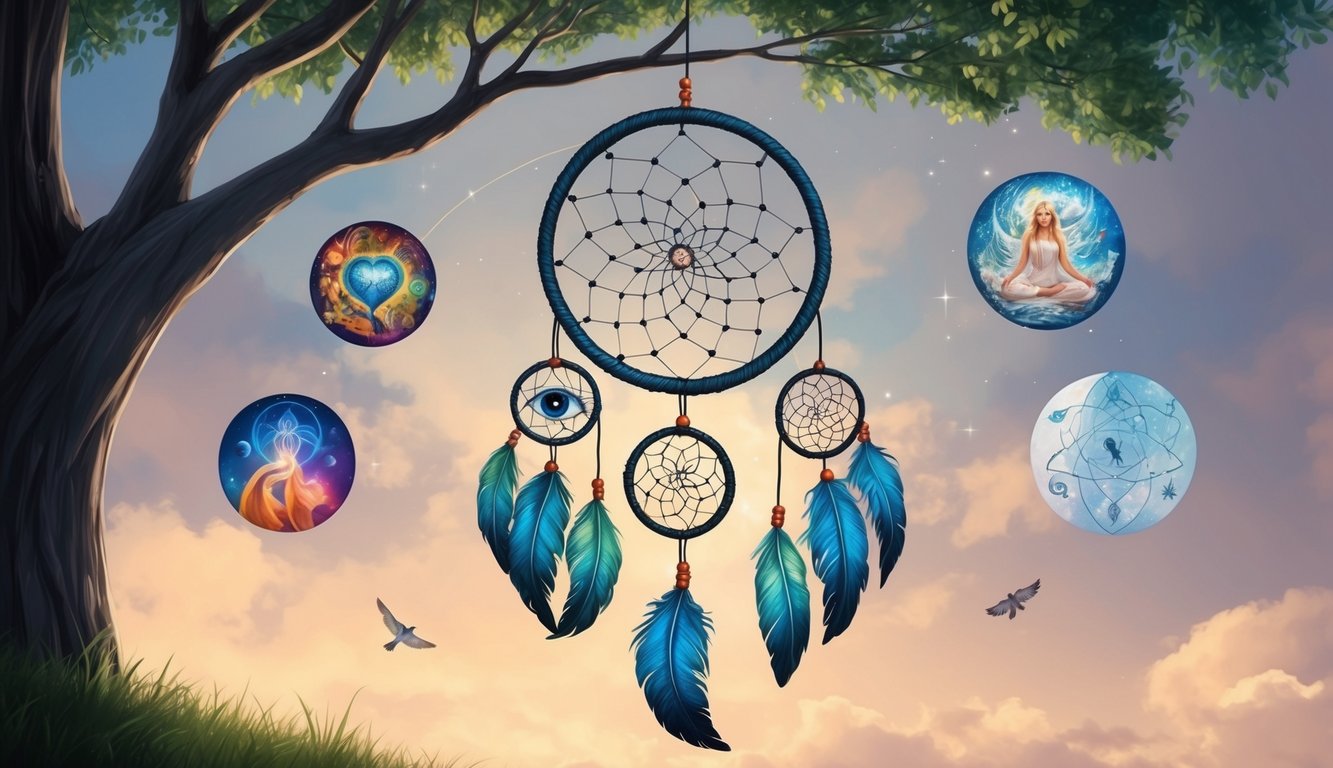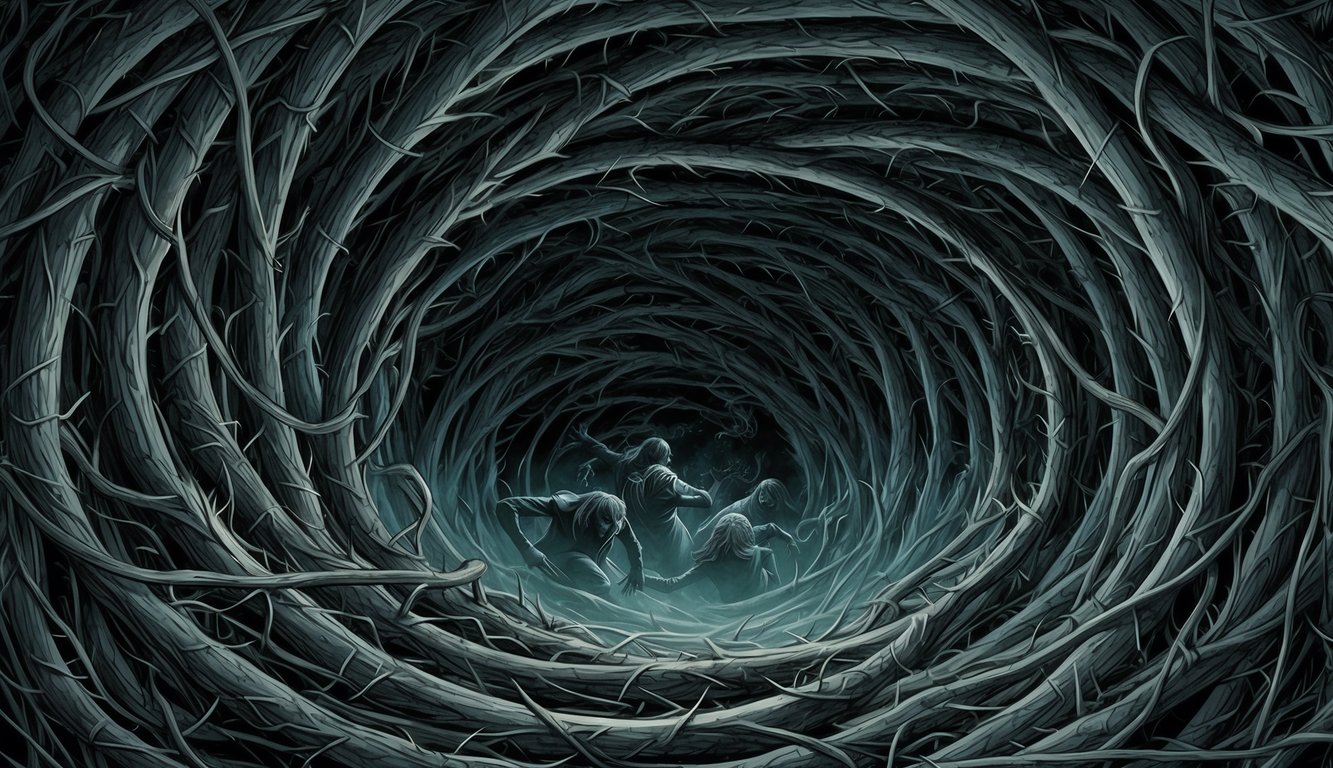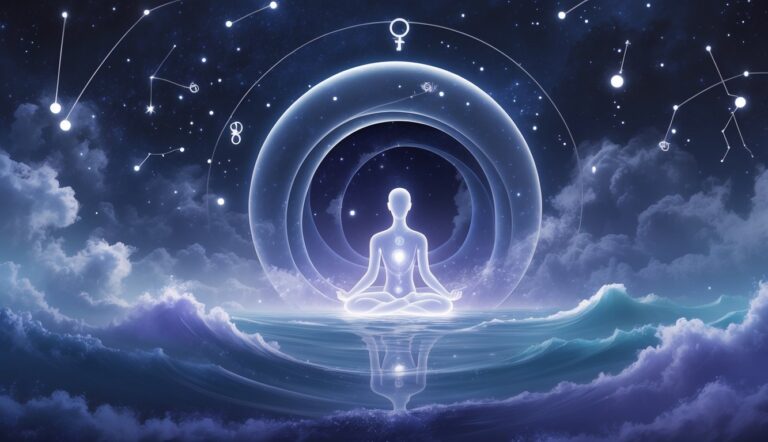Align Your Life with Your True North
The Power Quadrant System decodes your natural talents and pinpoints the career, timing and relationships that let you earn more, love deeper, and wake up eager for the day.
- Uncover your #1 high-income strength
- Draw in partners who raise your energy
- Work when your body’s clock is in “flow”
Dreams can be puzzling, but learning to interpret them can offer insights into your unconscious mind. You can start interpreting your dreams by paying attention to symbols, emotions, and recurring themes. This process may help you understand yourself better and work through issues in your waking life.
Dream interpretation has a long history.
Many cultures have tried to make sense of the stories our minds create while we sleep.
Today, there are different ways to look at dreams.
Some people use dream dictionaries, while others focus on personal meanings.
When you interpret your dreams, remember that they’re unique to you.
What a symbol means in your dream might be different from what it means to someone else.
It’s helpful to keep a dream journal and look for patterns over time.
This can help you spot important themes in your dreams.
Key Takeaways
- Pay attention to symbols, emotions, and themes in your dreams to gain insights
- Keep a dream journal to track patterns and recurring elements
- Remember that dream meanings are personal and unique to you
The Science of Dreams
Dreams fascinate scientists and researchers.
They study how our brains create dreams and what dreams might mean.
Decode Your Personal Success Blueprint
Power Quadrant System shows you the exact career, relationships, and daily rhythm that match your natural DNA—so you earn more, work happier, and connect deeper.
- Pinpoint your #1 money-making talent
- Erase conflict & attract ideal partners
- Multiply productivity with perfect timing
Let’s explore some key areas of dream science.
Understanding REM Sleep
REM sleep is when most vivid dreams happen.
Your brain becomes very active during this stage.
Your eyes move rapidly and your body is paralyzed.
This keeps you from acting out your dreams.
REM sleep occurs in cycles throughout the night.
Each cycle lasts about 90 minutes.
As the night goes on, REM periods get longer.
During REM sleep, your brain makes different chemicals that help create dream stories and images.
Tap Into Your Built-In Success GPS
The Power Quadrant System deciphers your genetic blueprint so you can lock onto the career, income and relationships that feel effortless—and wildly rewarding.
- Zero in on your natural high-earning genius
- Sync with partners who boost your vibe
- Wake up driven, finish days fulfilled
Scientists can see increased activity in parts of your brain linked to emotions and memory.
Memory Consolidation
Your brain uses sleep to process memories.
It sorts through the day’s events and decides what to keep.
This process is called memory consolidation.
Dreams may play a role in this.
They might help you:
- Practice important skills
- Work through emotional experiences
- Solve problems from your waking life
Some researchers think dreams help your brain make new connections.
This could boost creativity and learning.
But the exact link between dreams and memory is still being studied.
Psychological Theories of Dreaming
Many psychologists have ideas about why we dream.
Sigmund Freud thought dreams showed hidden wishes.
He believed dreams were a window into your unconscious mind.
Modern theories suggest dreams might:
- Help you process emotions
- Prepare you for future challenges
- Sort through random brain signals
Some experts think dreams don’t have deep meaning.
They might just be your brain’s way of making sense of activity while you sleep.
Your personal experiences and culture can shape your dreams.
This is why dream symbols might mean different things to different people.
Historical Perspectives on Dream Interpretation
Dream interpretation has changed a lot over time.
Different experts have come up with new ways to understand what dreams mean.
Let’s look at some of the most important ideas about dreams.
Sigmund Freud’s Approach
Sigmund Freud thought dreams were very important.
He said dreams show your hidden wishes.
Freud believed dreams had two parts: the manifest content and the latent content.
The manifest content is what you remember when you wake up.
The latent content is the hidden meaning.
Freud said dreams were the “royal road to the unconscious.”
To interpret your dreams, Freud used free association.
This means you say whatever comes to mind about your dream.
He thought this would help find the hidden meaning.
By doing this, Freud believed people could uncover unconscious thoughts and desires linked to their dreams.
When someone asked, “what does my dream mean,” he encouraged them to explore their feelings and memories connected to the dream symbols.
This process helped reveal deeper emotions and conflicts that might not be obvious at first.
Carl Jung’s Ideas
Carl Jung had different ideas about dreams.
He thought dreams showed important parts of your personality.
Jung believed dreams could help you grow as a person.
Jung came up with the idea of archetypes.
These are symbols that show up in everyone’s dreams.
For example, water might mean your emotions.
He also talked about the collective unconscious.
This is like a shared memory all humans have.
Jung said some dream symbols come from this shared memory.
Calvin Hall’s Theory
Calvin Hall had a new way of looking at dreams.
He said dreams are like thinking while you sleep.
Hall thought dreams show how you see yourself and the world.
He came up with the idea of dream content analysis.
This means looking at what happens in dreams, not just what they might mean.
Hall collected thousands of dreams to study.
He found that most dreams are about everyday things.
Hall said dreams help you work out problems in your life.
G. William Domhoff’s Views
G. William Domhoff built on Hall’s work.
He uses computers to study lots of dreams at once.
Domhoff thinks dreams reflect your waking concerns.
He doesn’t think dreams have hidden meanings.
Instead, he says dreams are about what you care about when you’re awake.
Domhoff created a method to score dreams based on their content.
Domhoff also studies how dreams change as you grow up.
He found that children’s dreams are different from adults’ dreams.
Decoding Common Dream Symbols
Dreams often use symbols to express our thoughts and feelings.
Let’s look at some common dream symbols and what they might mean for you.
Animals in Dreams
Animals in dreams can represent different parts of yourself or others in your life.
Snake dreams might show hidden fears or wisdom.
A friendly snake could mean you’re facing your worries.
An attacking snake may point to a threat in your life.
Spider dreams often relate to feeling trapped.
A big spider might mean a problem is growing.
Catching a spider could show you’re taking control of an issue.
Dogs in dreams may stand for loyalty.
Cats might mean independence.
Birds could represent freedom or your hopes.
Dreams Involving People
People in your dreams can show different sides of yourself or your relationships.
A stranger might represent a new part of you or an unknown situation.
Seeing a friend could mean you need their qualities in your life.
Dreams about teeth falling out are common.
They might mean you’re worried about your looks or saying the wrong thing.
Death dreams don’t usually mean real death.
They often show the end of something in your life, like a job or relationship.
Situational Dream Themes
Some dreams put you in specific situations that can have deeper meanings.
Dreams about being chased might mean you’re avoiding a problem in real life.
Try to face what’s chasing you in the dream.
Flying dreams often show a sense of freedom.
If you’re flying well, you might feel in control of your life.
Trouble flying could mean you feel held back.
Falling dreams may mean you feel out of control or anxious about something.
They’re often tied to stress in your daily life.
Different Types of Dreams
Dreams come in many forms.
Each type can give us unique insights into our minds and emotions.
Let’s look at some common dream types and what they might mean.
Nightmares and Their Meaning
Nightmares are scary dreams that can wake you up feeling afraid.
They often show your fears or worries.
Common nightmares include:
- Being chased
- Falling from high places
- Losing teeth
These dreams might point to stress in your life. Nightmares can help you work through tough feelings.
They’re not fun, but they can be useful.
Try to think about what scared you in the dream.
It might show you something you need to face in real life.
Recurring Dreams Explained
Do you have the same dream over and over? These are recurring dreams.
They often show up when you have unresolved issues.
Some common recurring dreams are:
- Being late for a test
- Flying
- Being naked in public
These dreams might be trying to tell you something.
Pay attention to how you feel in the dream.
It could point to feelings you’re not dealing with when you’re awake.
Recurring dreams can give clues about your inner thoughts.
Try to notice any patterns.
They might help you understand yourself better.
Visitation Dreams
Visitation dreams are when you dream about someone who has died.
These dreams can feel very real.
You might wake up feeling like you really talked to that person.
Many people find comfort in these dreams.
They can help you:
- Say goodbye
- Work through grief
- Feel connected to loved ones
It’s okay to enjoy these dreams.
They don’t mean you’re not moving on.
They’re a normal part of missing someone.
Common Types of Dreams
Some dreams are very common.
You might have had some of these:
- Falling dreams: Often linked to feeling out of control
- Flying dreams: Can mean you feel free or powerful
- Being chased: Might show you’re avoiding something
- Teeth falling out: Could mean you’re worried about your looks
Dreams about pregnancy are also common.
They don’t always mean you want a baby.
They might show you’re creating something new in your life.
Remember, your dreams are personal.
What they mean depends on your life and feelings.
Trust your gut when you think about your dreams.
Freud’s Theory of Wish Fulfillment
Sigmund Freud believed your dreams are more than just random images.
He thought they had hidden meanings tied to your desires.
Freud’s big idea was that dreams are a way for you to fulfill wishes.
These wishes might be things you want but can’t have in real life.
When you sleep, your mind relaxes its usual rules.
This lets hidden wishes come out in dream form.
It’s like your brain is giving you a secret treat!
Here are some key points about Freud’s theory:
- Dreams represent unconscious desires
- Even scary dreams fulfill a wish in some way
- Childhood experiences shape adult dreams
Freud said dream symbols often have sexual meanings.
But modern experts think this view is too narrow.
To understand your dreams, Freud suggested looking at the details.
He believed every part of a dream had meaning.
Nothing was random.
You might find hidden wishes in your dreams by thinking about:
- People in your dream
- Places you see
- Actions you take
- Feelings you have
Remember, not everyone agrees with Freud’s ideas today.
But his work got people thinking about what dreams might mean.
Try keeping a dream journal.
You might spot patterns or recurring themes that reveal your inner wishes!
Jungian Interpretation and the Collective Unconscious
Carl Jung believed dreams come from a shared pool of thoughts and images he called the collective unconscious.
This idea sets his dream work apart from other methods.
When you interpret your dreams using Jung’s approach, you look for symbols with deeper meanings.
These symbols often connect to ancient stories or human experiences.
Jung thought dreams could show parts of yourself you don’t know about.
He called these hidden parts “archetypes.” Some common archetypes are:
- The Hero
- The Mother
- The Wise Old Man
- The Trickster
To understand your dreams, try to spot these archetypes.
Think about how they might relate to your life or inner self.
Jung also believed dreams could predict the future or give warnings.
But don’t worry – this doesn’t mean all your dreams are magical signs.
When you analyze your dreams, pay attention to your feelings.
Jung thought emotions in dreams were very important.
They can show you what matters most to you.
Remember, there’s no one right way to interpret dreams.
Jung’s ideas are just one tool you can use.
Trust your gut and have fun exploring your dream world!
Anxiety and Trauma in Dreams
Dreams can show you how your mind deals with stress and hard times.
When you feel worried or scared, your dreams might be full of anxiety.
You might see things that make you feel nervous or uneasy.
Your heart might race, even in your sleep.
These dreams can help you spot what’s bothering you in real life.
Traumatic dreams often replay scary events.
You might see the same bad thing happen over and over.
This is your brain trying to make sense of what happened.
To interpret these dreams:
- Write them down as soon as you wake up
- Look for patterns or repeated symbols
- Think about how the dream made you feel
- Talk to someone you trust about your dreams
Remember, your dreams are trying to help you.
They show what’s on your mind and can point to things you need to work on.
As you heal, your dreams may change.
They might become less scary over time.
This can be a good sign that you’re getting better.
Don’t be afraid to ask for help if your dreams upset you a lot.
A doctor or therapist can give you tips to sleep better and feel calmer.
Using a Dream Dictionary
Dream dictionaries can be handy tools for finding meanings in your dreams.
They list common dream symbols and their possible meanings.
To use a dream dictionary:
- Write down your dream as soon as you wake up
- Pick out key symbols or events
- Look them up in the dictionary
- Think about how the meanings fit your life
Remember, dream meanings are personal.
A symbol might mean something different to you than what the dictionary says.
Try looking up the same symbol in a few different dream dictionaries.
This can give you more ideas about what it might mean.
Don’t take the meanings too literally.
Your dreams often use symbols to represent feelings or situations in your life.
It’s fun to share your dreams with friends and hear their ideas too.
They might spot meanings you missed.
Keep a dream journal along with your dictionary.
Over time, you’ll start to see patterns in your dreams and what they mean for you.
Dream Analysis Techniques
Dream analysis helps you understand your subconscious mind.
These methods can reveal hidden meanings and patterns in your dreams.
Keeping a Dream Journal
Start by keeping a dream journal.
Place a notebook and pen by your bed.
As soon as you wake up, write down everything you remember about your dream.
Include details like colors, feelings, and people you saw.
Don’t worry if you can’t recall everything.
Even small fragments can be useful.
Try to write in the present tense, as if you’re experiencing the dream right now.
Review your journal often.
Look for themes or symbols that show up a lot.
This practice helps train your brain to remember more dreams over time.
Pattern Recognition and Repetition
Pay attention to recurring elements in your dreams.
These could be places, objects, or situations that appear frequently.
Make a list of these repeated symbols.
Think about what they might mean to you personally.
For example, dreaming of water often might relate to your emotions.
Look for patterns in how you feel during these dreams.
Are you always scared, happy, or confused? These emotions can give clues about what your subconscious is trying to tell you.
Emotional Analysis
Focus on the feelings you experience in your dreams.
Were you scared, excited, or sad? These emotions can be just as important as the dream’s content.
Try to connect these dream emotions to your waking life.
Are you feeling similar things during the day? Your dreams might be processing these feelings.
Don’t judge your dream emotions.
Instead, use them as a tool to better understand yourself.
If you feel stuck, talk to a friend or therapist about your dreams.
They might offer new perspectives on your emotional experiences.
When to Seek Professional Help
Dreams can be tricky to figure out on your own.
Sometimes, you might need expert help.
Here are some signs it’s time to talk to a pro:
You have nightmares that won’t go away.
If bad dreams keep coming back, a therapist can help you work through them.
Your dreams make you feel very anxious.
A dream interpretation by a pro can ease your worries.
You have recurring dreams that bother you.
A therapist can help you understand why they keep coming back.
Your dreams are about past trauma.
It’s important to get help dealing with these tough memories.
You feel stuck trying to understand your dreams.
A psychotherapist can guide you to make sense of them.
Remember, there’s no shame in asking for help.
Your dreams might be trying to tell you something important.
A pro can help you listen and learn from them.
Look for a therapist who knows about dreams.
They can teach you ways to work with your dreams that you might not know about.












